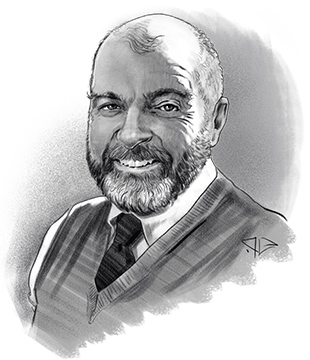- Feb 5, 2002
- 166,879
- 56,394
- Country
- United States
- Faith
- Catholic
- Marital Status
- Married
- Politics
- US-Others
“What is truth?” That cynical question, memorably posed by Pontius Pilate, is enjoying new currency today, thanks to public statements by Katherine Maher, the newly installed head of National Public Radio (NPR).
Of course. The First Amendment guarantees freedom of speech and freedom of the press, and thereby protects the rights of people who express unpopular opinions. That protection does not sit well with Maher, who wants to suppress certain opinions. You know, bad opinions.
Maher’s own opinions have been well documented, thanks to her busy Twitter account. In a critical assessment for City Journal, Christopher Rufo writes: “On every topic, Maher adopts the fashionable language of left-wing academic theory and uses it as social currency, even when her efforts veer into self-parody.”
Continued below.

 www.catholicculture.org
www.catholicculture.org
”We all have different truths,” Maher told a TED talk audience, explaining that there are “many different truths.” So she is not worried by the fact that, as she sees it, NPR reporters “are not focused on the truth.”
By “getting things done,” Maher means giving people good information, and protecting them from bad information. At NPR, as at her previous post with Wikipedia, she is determined to suppress misinformation. And in that quest, she says, “the number-one challenge here that we see is, of course, the First Amendment in the United States.”They’re focused on something else, which is the best of what we can know right now. …. Perhaps, for our most tricky disagreements, seeking the truth, and seeking to convince others of the truth, might not be the right place to start. In fact, a reverence for the truth might be a distraction that’s getting in the way of finding common ground and getting things done.
Of course. The First Amendment guarantees freedom of speech and freedom of the press, and thereby protects the rights of people who express unpopular opinions. That protection does not sit well with Maher, who wants to suppress certain opinions. You know, bad opinions.
Maher’s own opinions have been well documented, thanks to her busy Twitter account. In a critical assessment for City Journal, Christopher Rufo writes: “On every topic, Maher adopts the fashionable language of left-wing academic theory and uses it as social currency, even when her efforts veer into self-parody.”
Continued below.

What is truth? A journalist asks Pilate’s question
Katherine Maher is telling the American people that they cannot trust NPR. Believe her.
